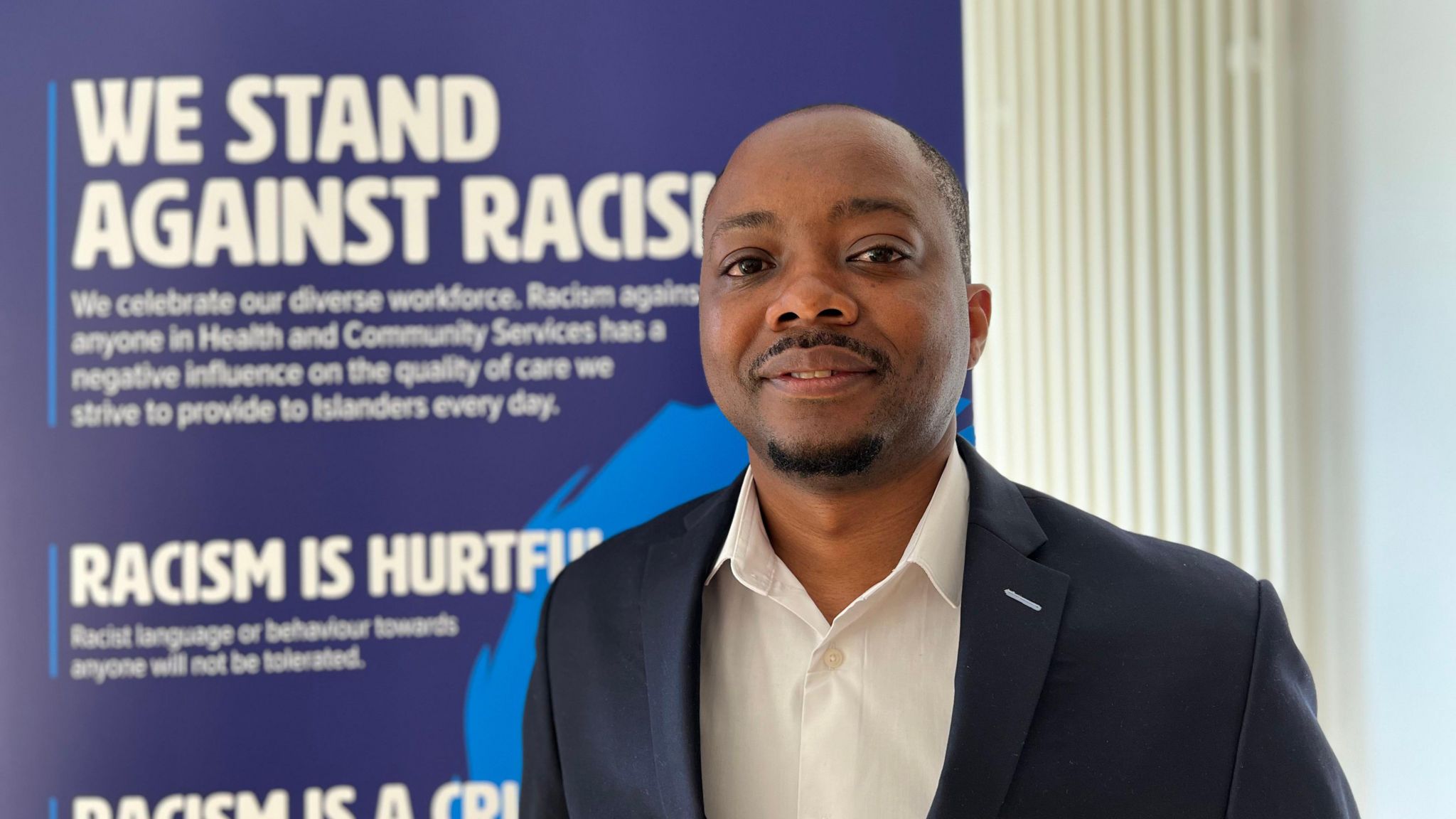Health service launches anti-racism campaign

Washington Gwatidzo has experienced racism and worked on the campaign
- Published
A campaign has been launched by Jersey's health department as part of a commitment to tackle racism in the workplace.
The campaign encourages staff to challenge racist behaviour to help ensure colleagues feel safe.
Washington Gwatidzo is an assistant general manager at the hospital and has worked on the campaign.
He has been subjected to racism at work and said "it's not something that I would wish anyone to experience".
Mr Gwatidzo said it is not just the direct victims of racism that are hurt, but there is also an impact on other staff members.
He said: "If you've got a colleague who feels unsafe in their workplace, it's going to impact the amount of work they can do and the way they do their work, which has an impact on other colleagues as well."
He said several people had approached him with experiences of racism.
Health staff have put up anti-racism posters around the hospital as part of the campaign launch.
They have also planned staff workshops, training sessions and surveys.
Posters have been put up as part of the campaign
The campaign was launched after senior leaders in Health and Community Services (HCS) committed to making the organisation more inclusive.
In a draft statement written in March, HCS said it would not tolerate any racist or discriminatory behaviours or beliefs.
"This means every one of us standing up against racism", the statement said.
The commitment was informed by a survey of HCS staff.
The survey found that nearly half of people who responded believed racism was a problem in the department, and half had faced racism from patients.
'Unacceptable and intolerable'
In an HCS board meeting, chief medical officer Chris Bown said some of the stories of racism experienced by staff "would make you weep".
He said people had suffered discrimination from public, patients and colleagues.
"This is unacceptable and intolerable... we have to face up the fact that this is plaguing us and we have to deal with it.
"It's something we need to rid ourselves of if patients are to receive the best care", Mr Bown said.
Follow BBC Jersey on X (formerly Twitter), external and Facebook, external. Send your story ideas to channel.islands@bbc.co.uk, external.
Related Topics
Related internet links
- Published29 April
- Published16 April